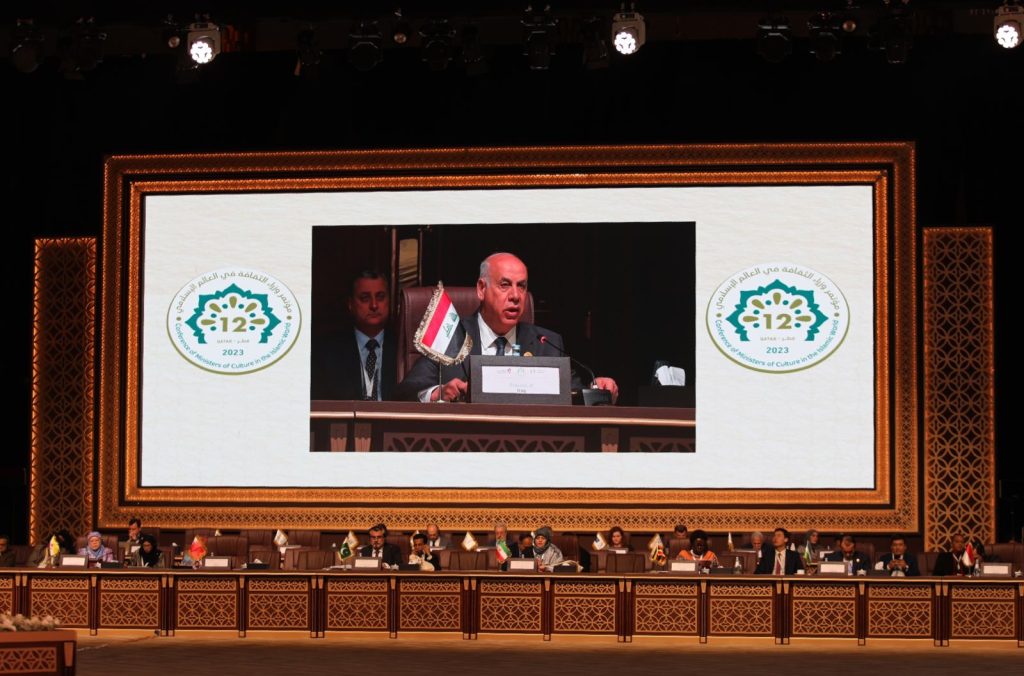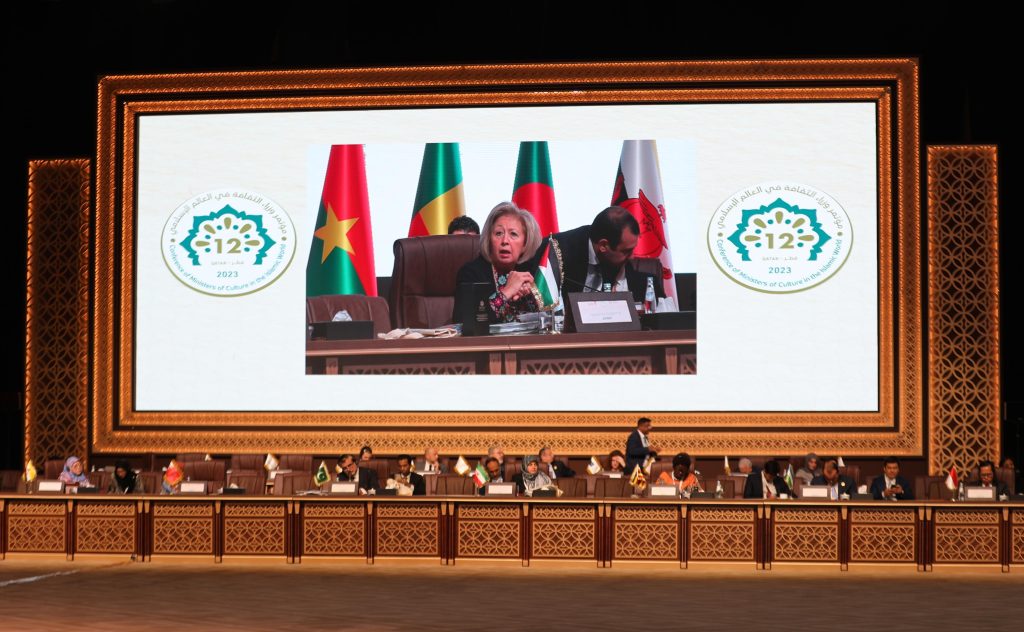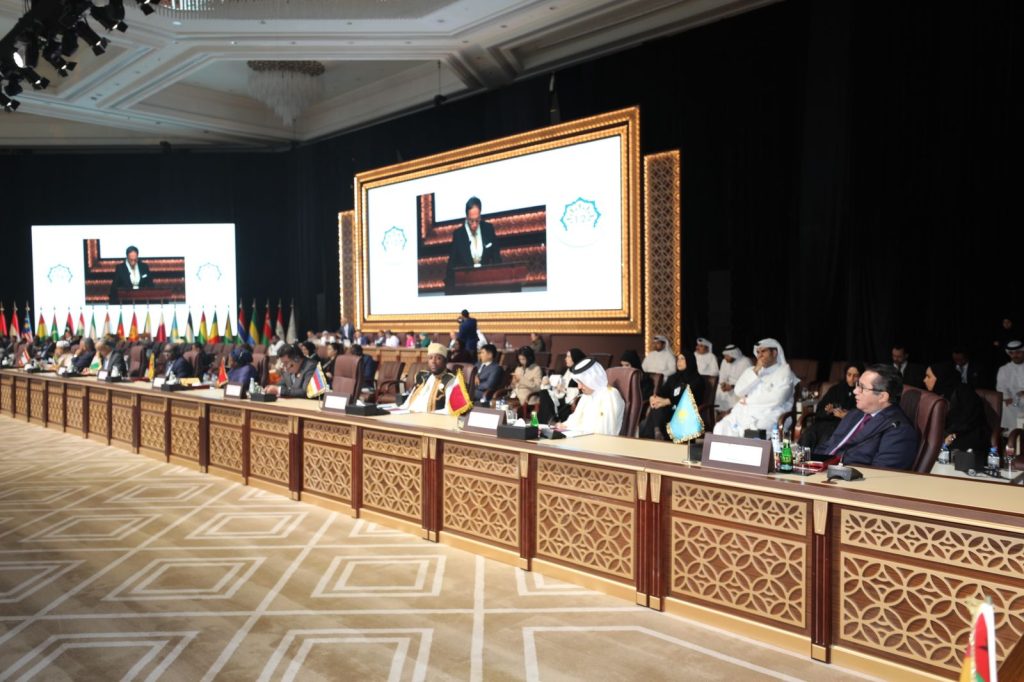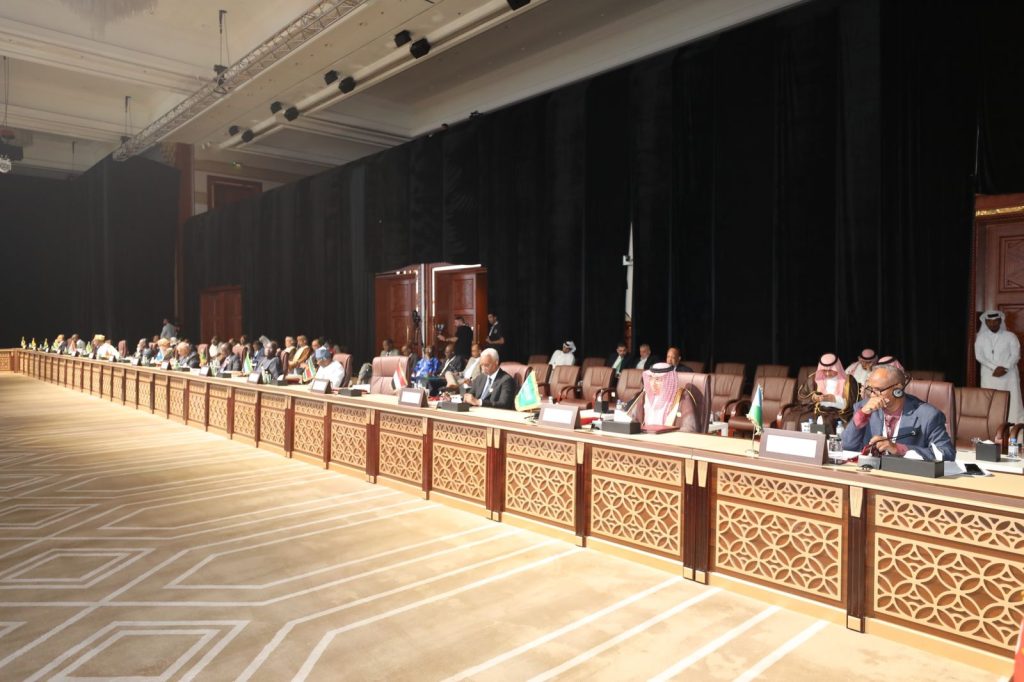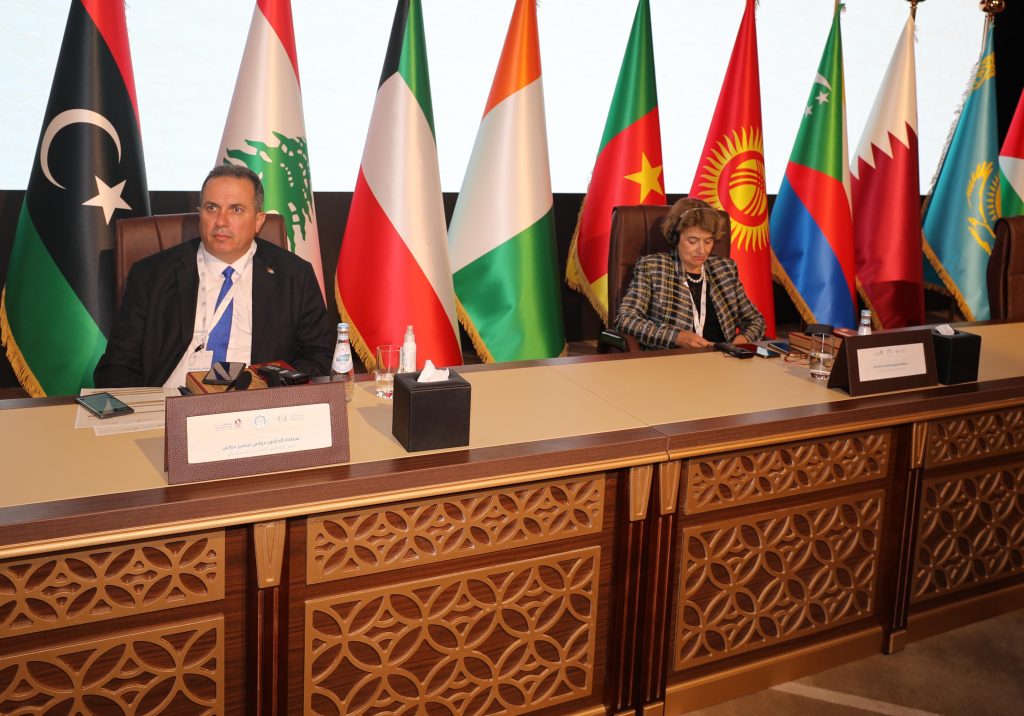
The Conference of Ministers of Culture in the Islamic World in Doha adopts several resolutions on its first day
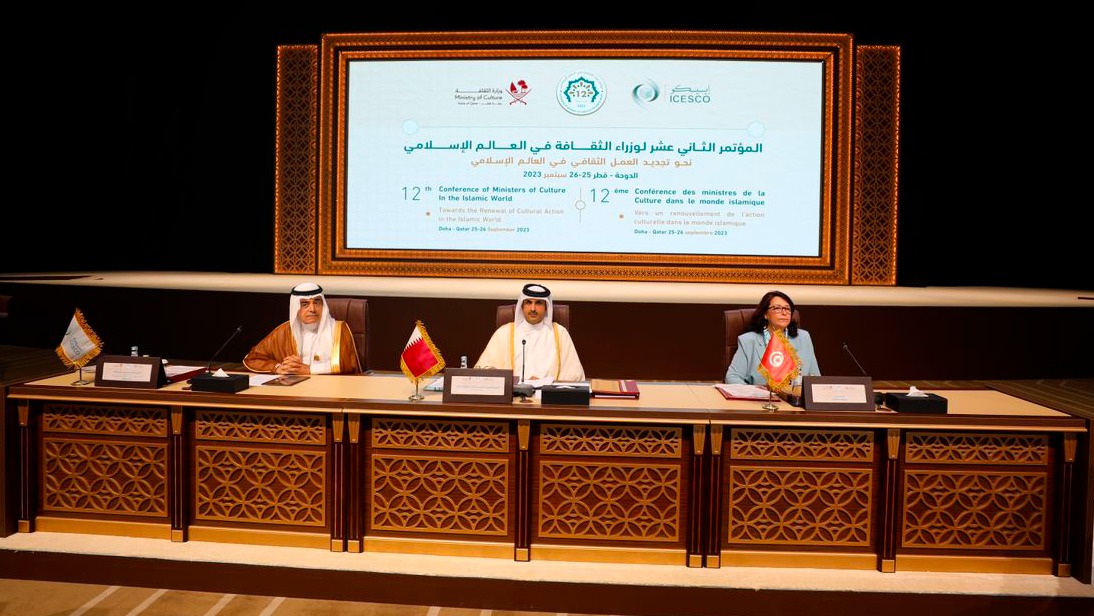
25 September 2023
The 12th Conference of the Ministers of Culture in the Islamic World, organized, in Doha, by the Islamic World Educational, Scientific, and Cultural Organization (ICESCO), and hosted by the State of Qatar, represented by its Ministry of Culture, concluded its first day’s proceedings, which witnessed the composition of the Conference Bureau and the Islamic World Heritage Committee, the adoption of the Report of the 18th Meeting of the Consultative Council for Cultural Development in the Islamic World, as well as the documents presented by ICESCO General Directorate.
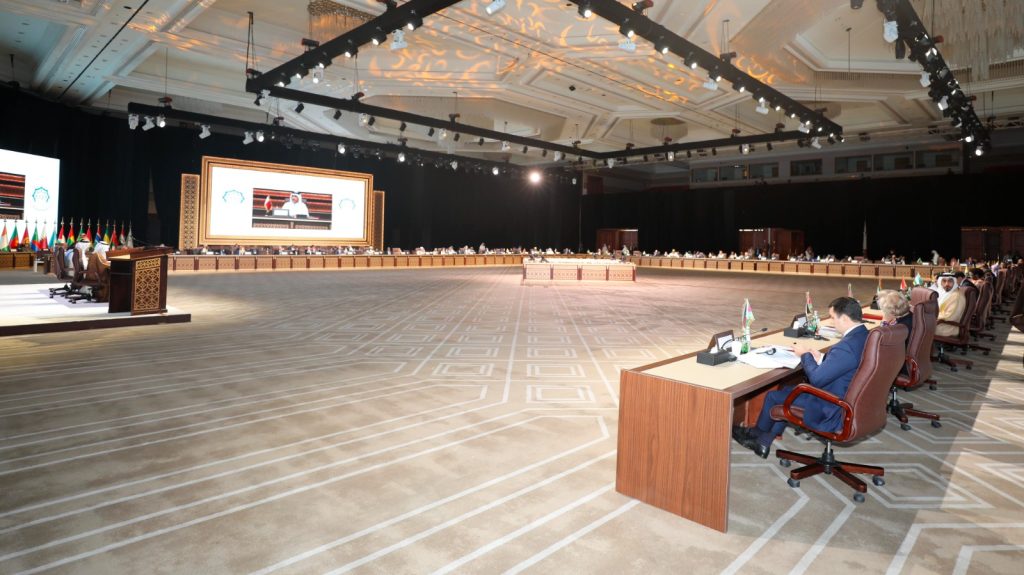
The Conference’s working sessions began with the formation of the Conference Bureau with Qatar as its President, Senegal as the Vice-president, and Tunisia as the Rapporteur.
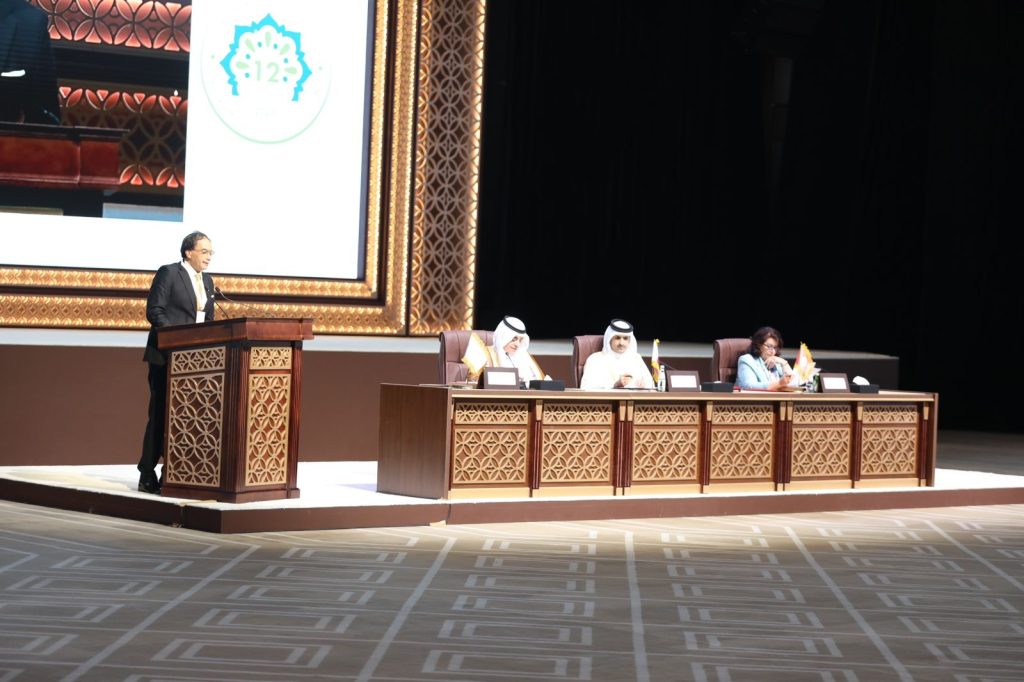
The Conference adopted the Organization’s Achievements Report in the Cultural Field between the Two Sessions of the Conference, presented by Dr. Mohamed Zinelabidine, head of the Culture and Communication Sector at ICESCO, in which he highlighted the Organization’s efforts to contribute to the renewal of cultural action. He also noted the Organization’s proposal to add an eighteenth goal to the Sustainable Development Goals for 2030 and submit it to the United Nations General Assembly. Sheikh Abdulrahman bin Hamad bin Jassim bin Hamad Al Thani, Minister of Culture of Qatar, announced Doha’s endorsement of this proposal.
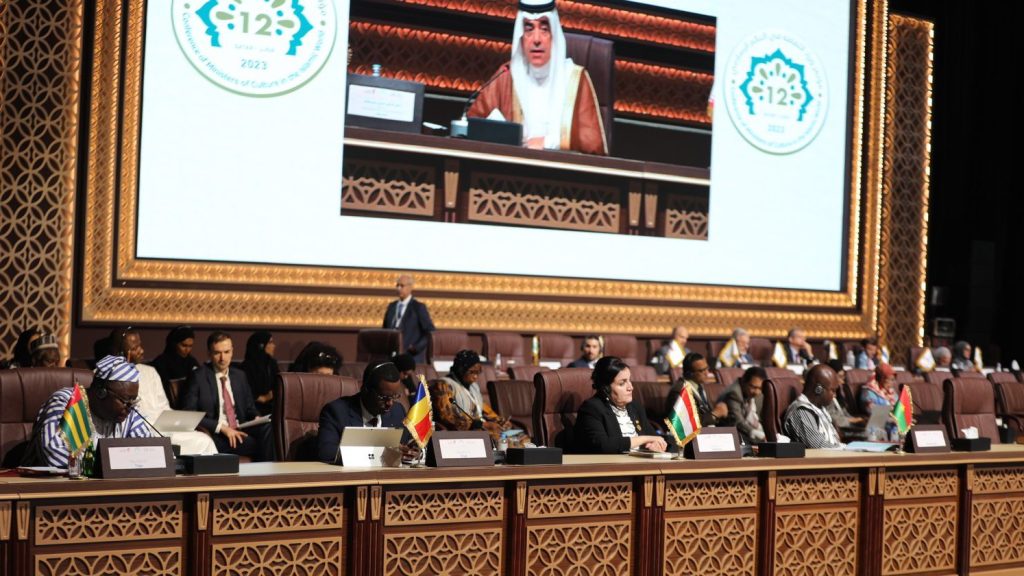
Dr. Salim M. AlMalik, ICESCO Director-General, mentioned that during his meeting with Ms. Amina Mohammed, Deputy Secretary-General of the United Nations, in New York, he had presented this proposal, which she welcomed.
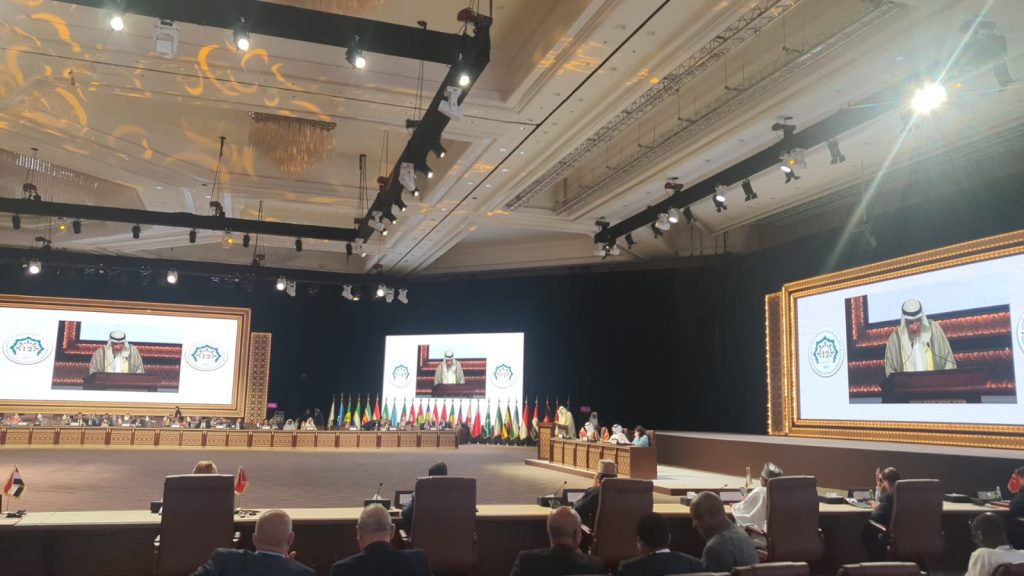
Dr. Walid Alseif, Chairman of the Islamic World Heritage Committee, also presented a report on the Committee’s prominent efforts during its previous session.
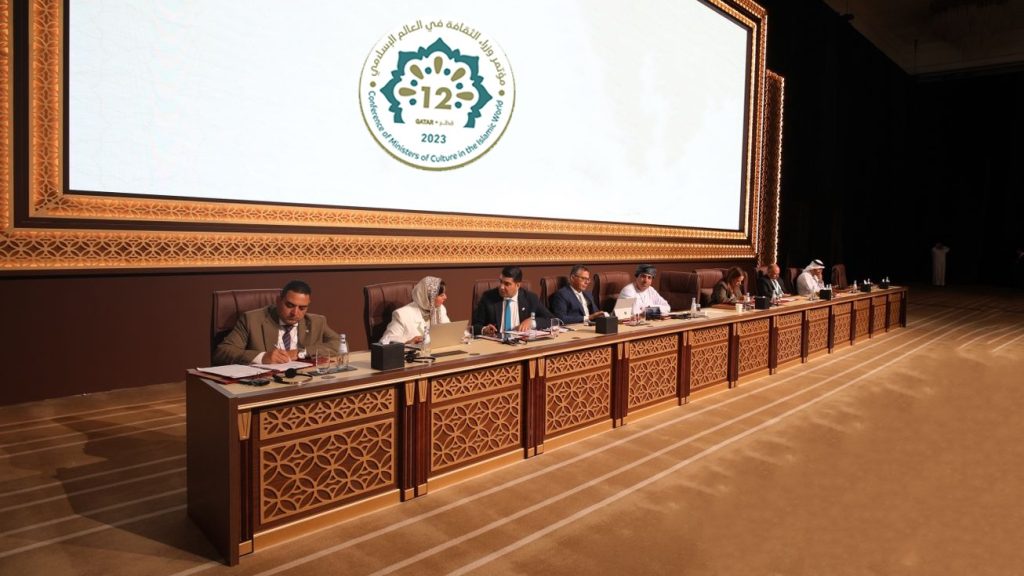
The Conference approved the new composition of the Islamic World Heritage Committee, the membership of which included the Kingdom of Saudi Arabia, the Sultanate of Oman, the Hashemite Kingdom of Jordan, the Kingdom of Morocco, the Republic of Burkina Faso, the Republic of Gabon, the Republic of Benin, the Republic of Senegal, Malaysia, Brunei Darussalam, and the Republic of Kazakhstan, as well as the State of Palestine, as a permanent member of the Committee, and the State of Qatar, as the conference president.
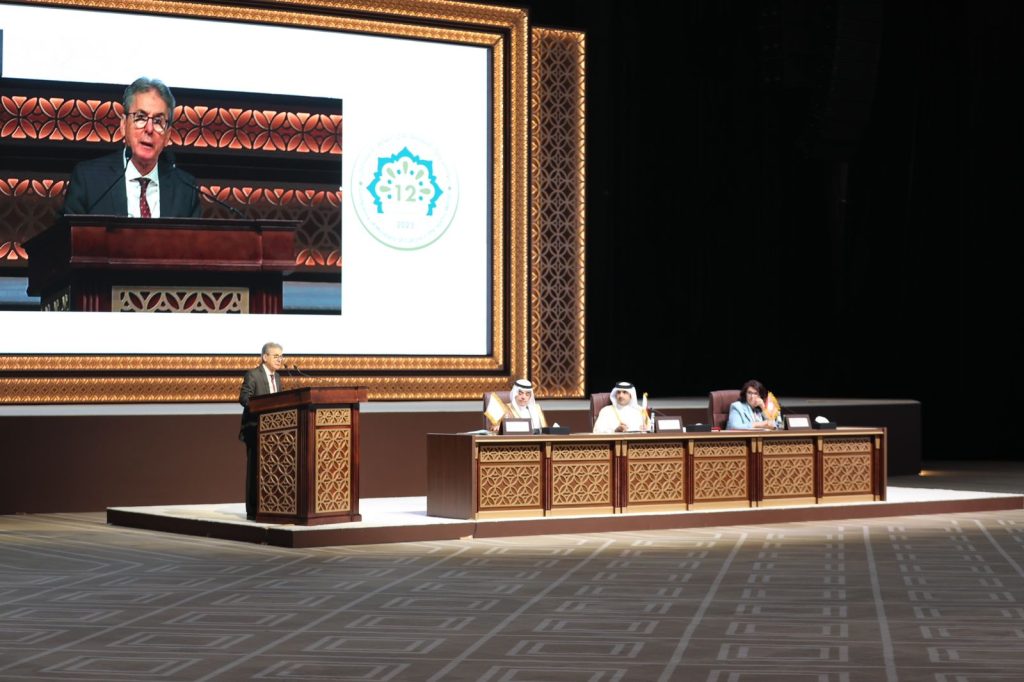
Mr. Najib Rhiati, Cultural Advisor to ICESCO Director-General, presented a document outlining the mechanisms for developing ICESCO’s Programme for Culture Capitals in the Islamic World. The Document included a new approach to selecting the culture capitals. The Conference adopted this document, which included the names of cities scheduled to be celebrated in the coming years, namely Shusha in the Republic of Azerbaijan for 2024, Samarkand in the Republic of Uzbekistan for 2025, Al-Khalil in Palestine, Abidjan in the Republic of Côte d’Ivoire for 2026, Siwa in the Arab Republic of Egypt for 2027, and Lusail in the State of Qatar for 2030.
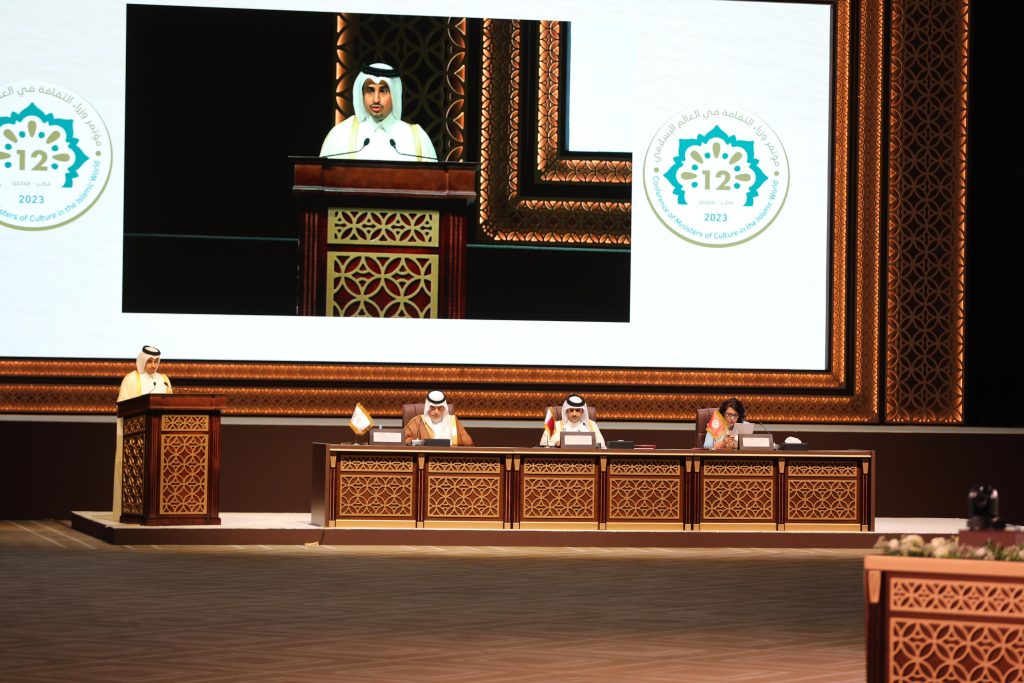
Dr. Ghanem bin Mubarak Al-Ali, the Assistant Undersecretary for Cultural Affairs at the Qatari Ministry of Culture, reviewed the results of the meeting of the Consultative Council for Cultural Development in the Islamic World and a report on the activities performed in the celebration of Doha as the 2021 Culture Capital in the Islamic World, under the theme “A Story of Success and Excellence.”
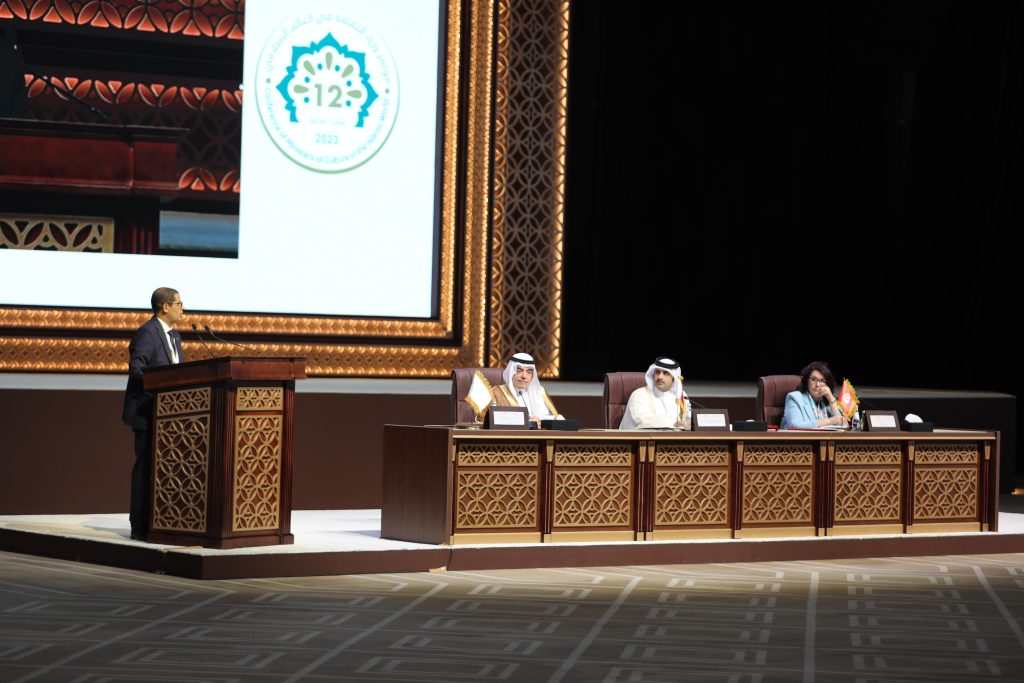
Dr. Nami Salhi, Director of the Islamic World Heritage Center at ICESCO, outlined the broad framework of the valorization of Living Human Treasures and traditional knowledge in the Islamic World program.
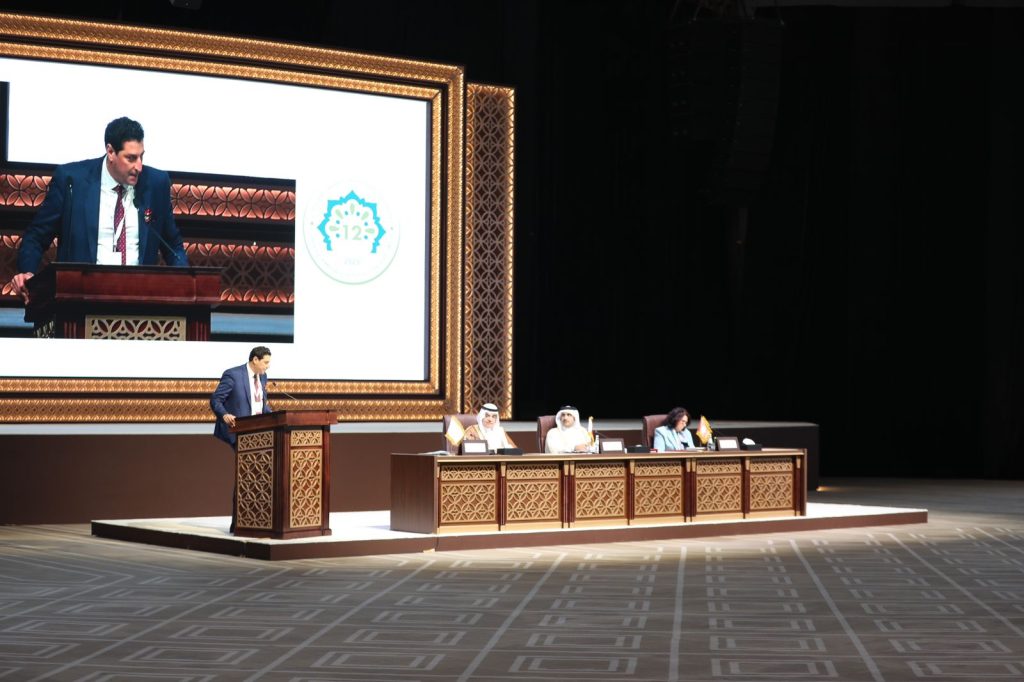
Mr. Mohamed Hedi Shili, Director of the Legal Affairs Department at ICESCO, presented a draft strategic document to combat the illicit trafficking of cultural property in the Islamic World. Both documents were adopted.
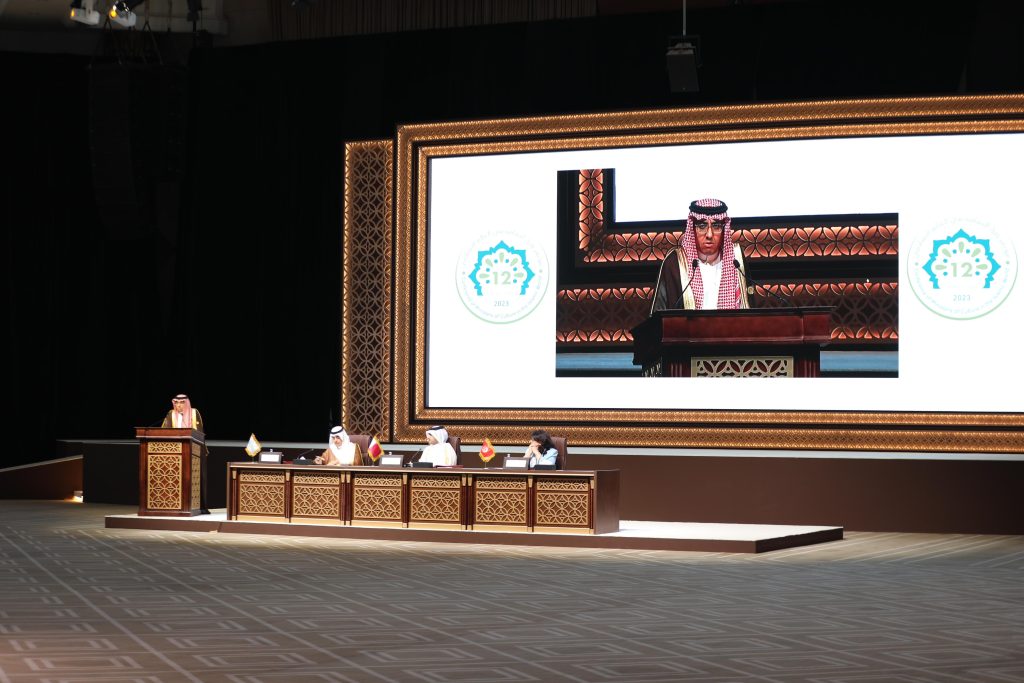
The head of the delegation of the Kingdom of Saudi Arabia presented an initiative specific to Hajj’ Routes, in addition to a project on cultural indicators for the Islamic world countries. The Conference welcomed and approved both initiatives.
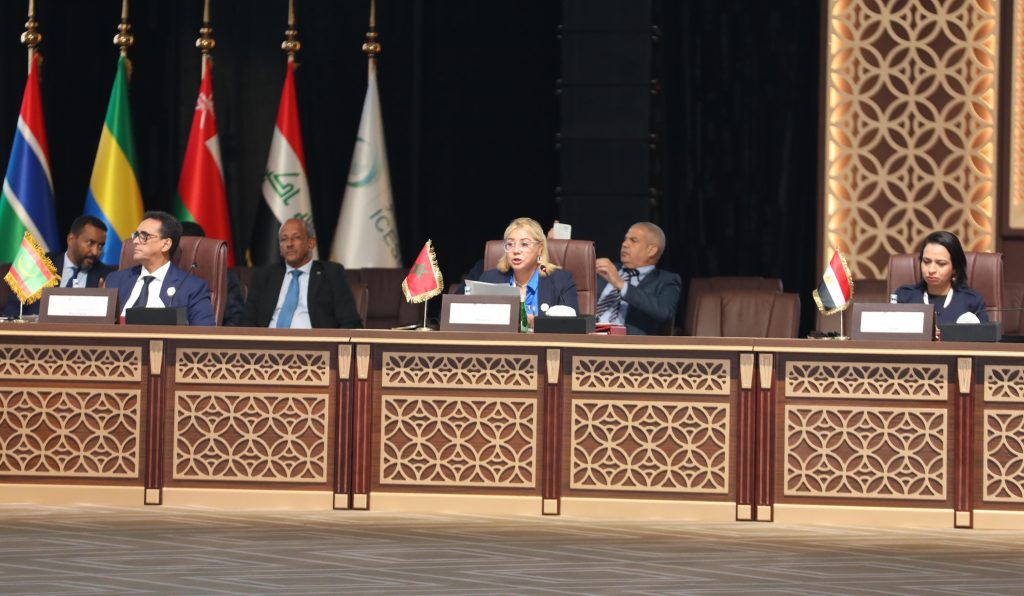
The second working session of the Conference will involve the delivery of addresses by the heads of participating countries’ delegations to exchange insights and ideas on the importance of renewing cultural action in the Islamic world and the means and mechanisms to achieve this goal.
